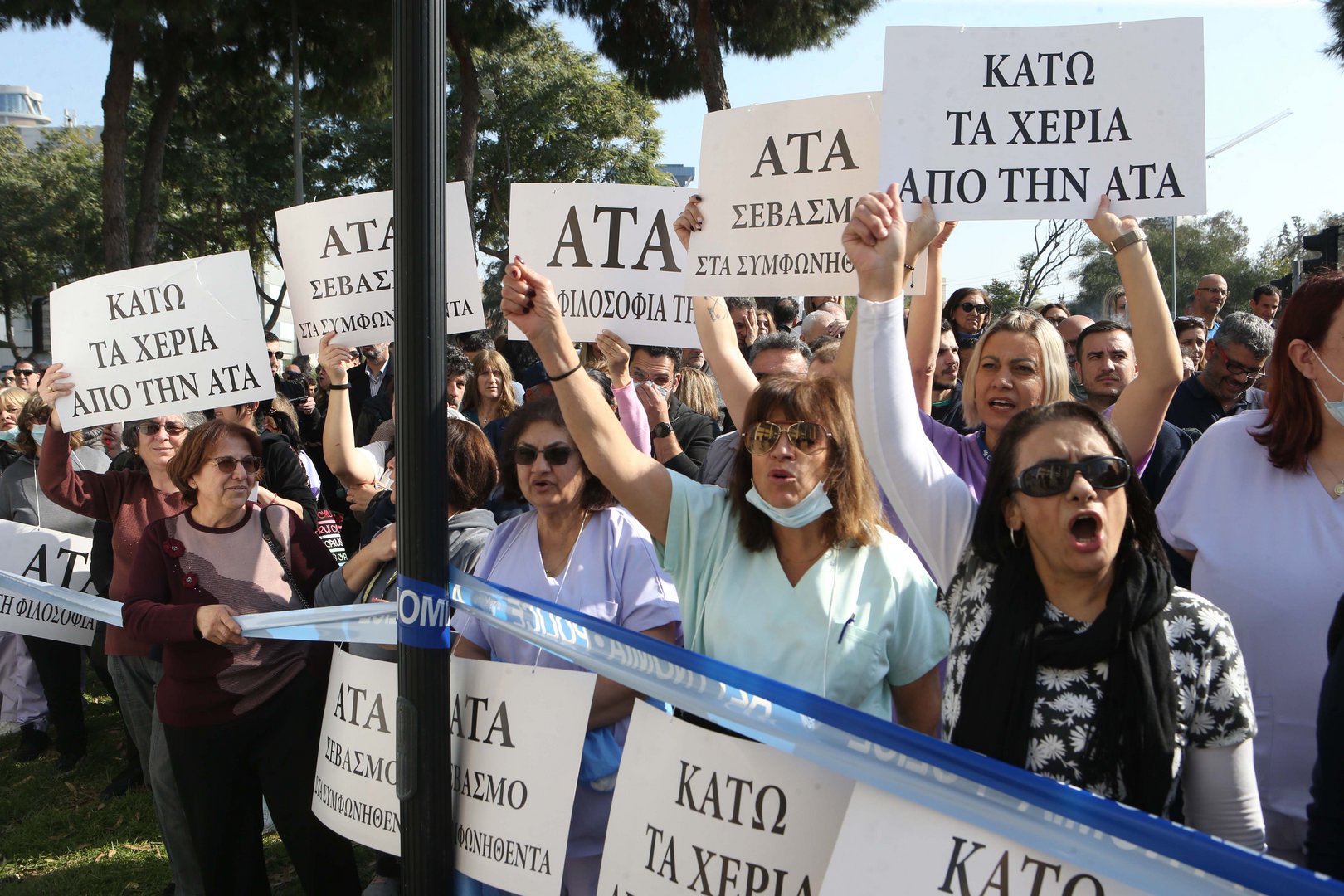There cannot be talk of resolving the dispute on hiring foreign workers as soon as possible while the cost of living (CoLA) allowance is still up in the air, Sek union general secretary Andreas Matsas said on Friday.
He was commenting on the long-standing discussion between unions and employers on the labour ministry’s proposals to include foreign nationals – specifically from third countries – in the workforce.
General secretary of the chamber of commerce (Keve) Marios Tsiakis said the sticking point for them is the clause that specifies companies can have 50 per cent of the workforce come from third countries only if they are part of collective agreements.
“We cannot force companies to have collective agreements. We also cannot have a 50 per cent limit.”
According to Tsiakis, the discussion over the rules on employing third country nationals has been ongoing for two years now, and companies are in dire straits wanting to hire more staff, calling for the issue to be solved before a new president is sworn in.
Nonetheless, the aversion to the union’s collective agreements “is not because we are allergic,” but because “we have a free economy and companies have their own rules which at the bare minimum have to adhere to the law. Why do I need to have the union in there?”
Tsiakis said the answer to workplace exploitation is better government oversight and not unions.
The proposals from the labour minister envisioned that companies can have the equivalent of 30 per cent of last year’s staff members as foreign workers – without a collective agreement prerequisite.
Going back to the contentious 50 per cent, Tsiakis reiterated that with difficulties to even find workers, it may be challenging to find the 50 per cent on the get-go.
“If an employer wants 10 people but only finds two or three, why do I have to wait to find the rest?”
The labour ministry proposal also sets in stone that Cypriot workers should be prioritised, with all staff regardless of nationality being paid and treated the same.
Union rep Matsas saw the discussion as a matter of businesses attempting to subvert collective agreements – both for CoLA discussions and that of foreign workers.
“We cannot accept or understand why businesses respond differently to CoLa compared to foreign workers,” he said.
He rejected the idea that the latter topic was more pressing due to the looming summer season, stressing dialogue cannot take place under pressure and the two matters fall under the broader umbrella of cementing workers’ rights.
Mass demos and a three-hour strike were staged on Thursday to protest over CoLA allowances.
Meanwhile, Cyprus Hotels Association (Pasyxe) chairman Haris Loizides said the Covid-19 pandemic had made the staff shortage situation far more severe, not just in Cyprus but globally, beyond the traditional challenges in recruiting staff to an industry that requires people to work over the holidays.
He said they weren’t outright opposed to collective agreements but some clauses were problematic to Pasyxe. “We are not allowed to hire gardeners, technicians, kitchen staffers but we are allowed to hire management in the kitchen, management staff in the restaurant and so forth. This should be scrapped, it’s ridiculous. Are we going to bring the foreigners to rule over the Cypriots?”







Click here to change your cookie preferences